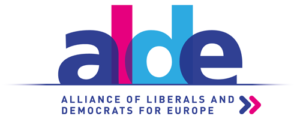State and public service: Ensure a high-performance service for citizens
The Luxembourg model has always been characterised by a modern and efficient public service. Skilful and motivated civil servants are a supporting pillar here. This was once again impressively demonstrated to society during the Corona pandemic. The DP continues to advocate for the modernisation and digitisation of the public service. In doing so, we attach great importance to proximity to the citizens, transparency and efficiency. Our goal is for Luxembourg to have the most modern and digital administration in Europe.
The civil service reform of 2015 brought major changes in areas such as salaries and careers, recruitment and leadership. Career paths were aligned with diplomas and degree certificates, new career paths emerged, others were merged into a common salary scale. In recent years, further reforms have been undertaken in the DP-led ministry to further enhance the attractiveness of the civil service. Specific image campaigns were used to draw attention to the diversity of careers. In addition, the duration of the internship was shortened, salaries were adjusted, the education and training of state employees was modernised, and the lower careers for civil servants and employees were harmonised. The experiences from the private sector are now also taken into account to a greater extent.
Under the auspices of the DP Ministry of Public Service, the government was able to sign a new responsible salary agreement with the civil servants’ union CGFP in each of the years 2021 and 2022. The latter, which includes a contract period of two years, provides for an increase of five per cent for the first 100 salary points in 2023. This currently corresponds to an amount of 111 euros per month. In particular, state employees with lower incomes, who suffer most from the loss of purchasing power due to inflation, will benefit from the 5 per cent increase. A general point value increase of 1.95 per cent will follow from 2024.
Social dialogue is an important factor of the Luxembourg model of success, also in the public sector. Our public service once again proved its systemic relevance in the Covid crisis and played a large part in our country coming through the pandemic relatively well. Therefore, correct collective agreements for civil servants, employees and workers should also be negotiated in the future – if state finances allow.
Teleworking for public administration is to be regulated by law. Therefore, the agreement reached between the government and the social partners should also be implemented quickly. The DP is of the opinion that regulations for cross-border workers should also be enshrined in law. The framework conditions around social security and tax law, in particular the suspension of the double taxation ordinance, are to be elaborated and enshrined in law.
DP stands for innovation and flexibility. The purpose of teleworking is to offer people more flexibility in their work organisation and in the way they organise their daily lives. The rules for home office should be laid down in law and also define clear framework conditions for working from home. This is especially true for families who do not live in the same household.
Especially in the home office, employees often run the risk of working irregularly or longer hours. Due to the accessibility at home, there is an increased risk of being contacted for work-related issues even during free time. The DP clearly stands behind the right of non-accessibility.
Women in high-level positions are still under-represented in the civil service. The DP will investigate what these differences are due to and promote and support equal representation in state administrations.
Digitalisation has gained enormously in value in recent years – due to the pandemic – and it is impossible to imagine the public service without it. Much has been achieved through new technologies, better education and training of civil servants, the creation of a Digital Academy and a GovTechLab. This has been certified by international bodies in Luxembourg and our country currently ranks third among 35 European countries in the eGovernement benchmark.
The DP is committed to ensuring that all administrative processes in the state will be possible digitally in the future – both for citizens and for businesses. These procedures should be designed in a simple and understandable way so that people without digital skills can also benefit from them to the maximum.
Artificial intelligence (AI) is becoming increasingly important, and the state has also gained initial experience with pilot projects. It is important that the appropriate framework for this is created and that these initiatives are professionally accompanied. Especially in the case of so-called chatbots, which provide explanations and information to citizens, the new technologies promise valuable support.
The work in the administrations is to be networked even better. Under the conditions of data protection, it should be possible to share documents between the individual administrations, thus avoiding unnecessary administrative procedures. Follow-up – Reference numbers for administrative procedures are intended to help citizens and businesses track the status of their applications at any time.
To achieve all this, investment in infrastructure is to be increased. The technical skills of public service employees are also to be further developed. As digitisation progresses, continuing education is also an important cornerstone to support this development. The DP is therefore committed to developing the professional skills of public service personnel and providing them with the necessary resources to do their work in the service of the community.
Refer to the chapter Digitisation and Media
Refer to the chapter Digitisation and Media
Analogue contact points are to remain in place in the future. Such guichets, which support citizens in their administrative procedures, are to be established in all regions of the country.
The DP will introduce the tax exemption of overtime, as it applies in the private sector, also in the public sector.




